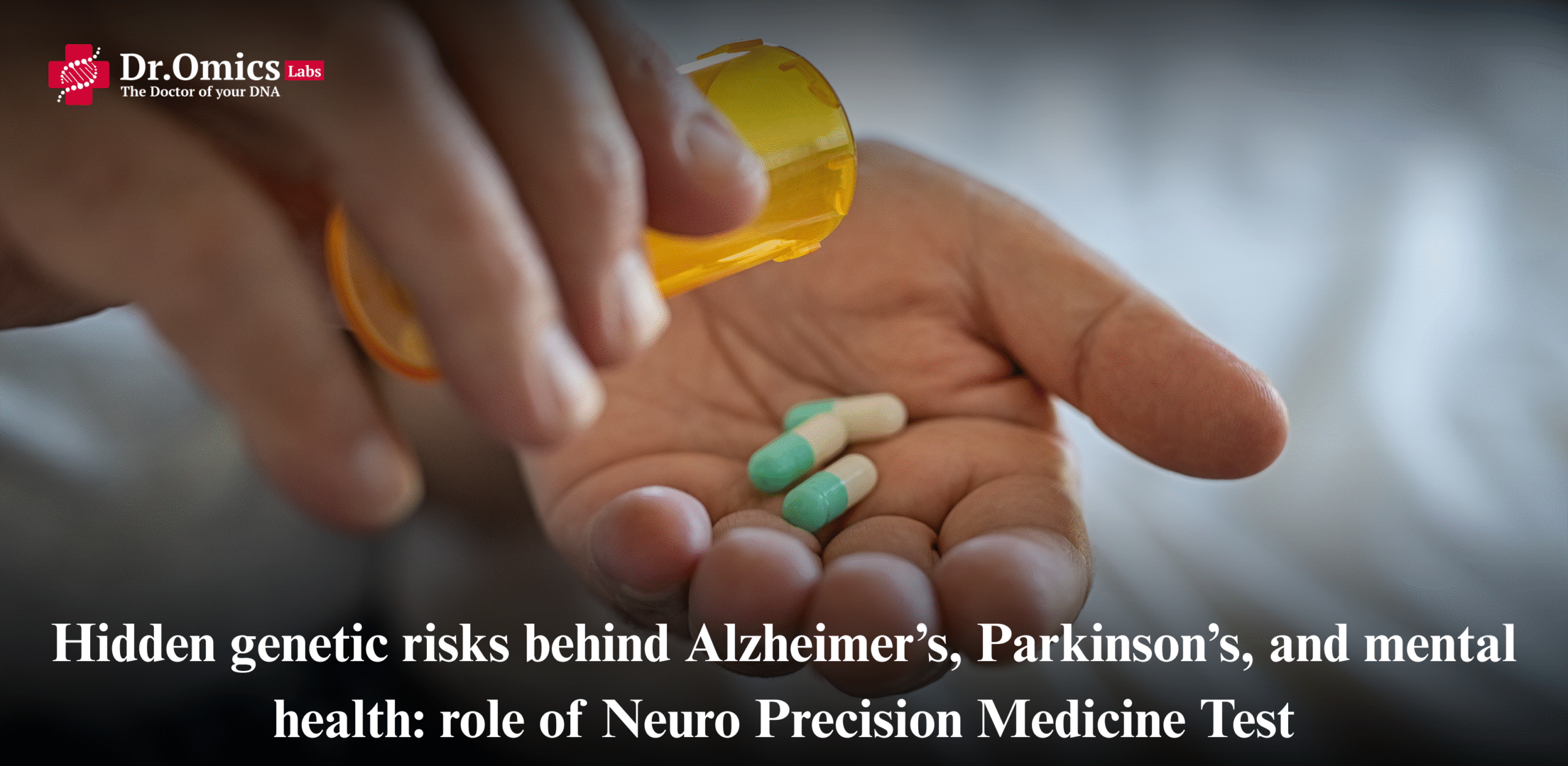Neurological disorders such as Alzheimer’s, Parkinson’s, and various mental health conditions are complex diseases influenced by a combination of lifestyle, environment, and genetics. Even with advances in treatment, these conditions often progress silently before symptoms emerge. Recent breakthroughs in brain health genetics and the advent of the Neuro Precision Medicine Test offer a new frontier in early detection and personalized neurology care that targets hidden genetic risks—enhancing prevention, diagnosis, and treatment.
Alzheimer’s and Parkinson’s diseases, in particular, have long been linked to specific genetic markers influencing risk and progression. For example, variants in the APOE gene notably increase susceptibility to Alzheimer’s, while mutations affecting dopamine regulation genes impact Parkinson’s development. Mental health disorders also show heritable components, involving complex gene interactions.
These conditions present heterogeneous symptoms and progression rates across individuals due to differences in their genetic makeup and epigenetic factors. This variability is why a “one treatment fits all” approach often fails.
What Is the Neuro Precision Medicine Test?
The Neuro Precision Medicine Test uses comprehensive genomic analysis combined with biomarkers and advanced neuroimaging data to uncover subtle pathological changes and genetic risk factors at preclinical stages. It assesses:
- Known risk genes linked to neurodegenerative diseases.
- Variants associated with inflammation, oxidative stress, and protein misfolding.
- Genetic profiles predictive of clinical trajectories and treatment responsiveness.
Combined with AI-driven algorithms, this test can stratify patients by risk and guide personalized intervention.
Transforming Neurology Care with Personalized Medicine
With these insights, neurologists can move beyond symptom management to tailored strategies that may slow disease progression or even prevent onset:
- Early application of targeted therapies suited to genetic profiles.
- Precision monitoring through biomarkers and neuroimaging to track subtle changes.
- Proactive management of risk factors modifiable via lifestyle or medication.
- Better clinical trial enrollment targeting patients most likely to benefit.
Recent studies demonstrate significant cognitive stabilization and improved outcomes in patients receiving precision medicine-guided treatments in early Alzheimer’s disease.
Mental Health and Neurogenetics
Beyond neurodegeneration, this test offers insights into genetic factors influencing psychiatric disorders, helping refine diagnoses and optimize psychotropic medication choices personalized to genetic variants affecting drug metabolism and receptor sensitivity.
Looking Ahead: A New Era of Brain Health Genetics
The Neuro Precision Medicine Test signifies a paradigm shift in managing conditions traditionally considered elusive. As genomics integrates with neurology, patients gain access to earlier, more precise, and more effective care designed around their unique genetic blueprint.




